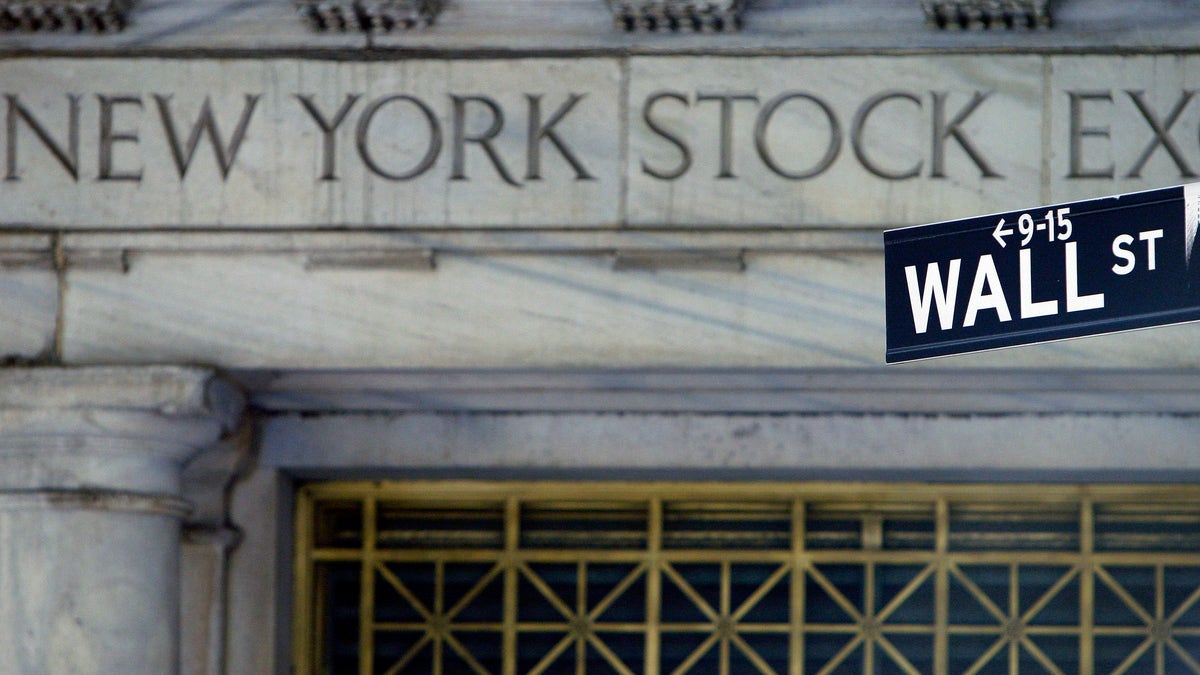
A street sign is seen in front of the New York Stock Exchange October 16, 2007. U.S. stocks fell on Tuesday after disappointing earnings and outlooks from financial services companies suggested problems from the credit squeeze will be prolonged. Oil prices, which earlier rose to a record on Middle East tensions, contributed to the stock market's gloom. REUTERS/Brendan Mcdermid (UNITED STATES)
Traders parsing the mystery of Thursday's stomach-churning stock-market plunge are focusing on whether rapid-fire computer trading, coupled with the market's complex trading systems, triggered a free fall that appears to have begun with an order to sell a single stock.
A big order to sell Procter & Gamble Co. shares came a little after 2:40 p.m., when the stock market was already jittery over turmoil in Greece. Minutes later, the market plunged, ultimately declining nearly 1000 points before rebounding rapidly.
The sell order was sent to the New York Stock Exchange, where it caused a log-jam in trading. Suddenly, P&G shares, among the market's most stable, fell about 35%.
It's not clear precisely how the P&G trade affected other securities. But the tumbling blue-chip stock helped drag down the Dow Jones index. Traders believe the big drop in P&G was picked up by computer models, which set off a chain reaction of selling in other stocks.
The violent fall has prompted an examination of the limitations of existing market "circuit breakers" and exposed weaknesses brought about by the changes in the character of modern stock markets, where most trading takes place at high speed between computers, rather than directly between human brokers.
At a minimum, traders said, the selloff shows that regulatory oversight of stock trading has not kept up with the changing nature of trading.
"There's no mechanism in the current system to stop an error from crushing a stock," said Dan Mathisson, head of electronic trading at Credit Suisse. "The regulators will need to explore restricting the use of market orders, or adding some type of circuit breakers."
Over the past two decades, stock trading has gone from a relatively transparent network of human "market makers" executing buy and sell orders at a handful of exchanges to an almost entirely computer-driven system fragmented among dozens of players. And regulators don't have the ability to directly monitor many of these new players.
Thursday's trading "clearly exposed the flaws in the current system," said William O'Brien, chief executive of Direct Edge, an electronic exchange. "We need to learn from this."
President Barack Obama said regulators "are evaluating this closely with a concern for protecting investors and preventing this from happening again." A House subcommittee set a hearing for Tuesday to investigate.









































